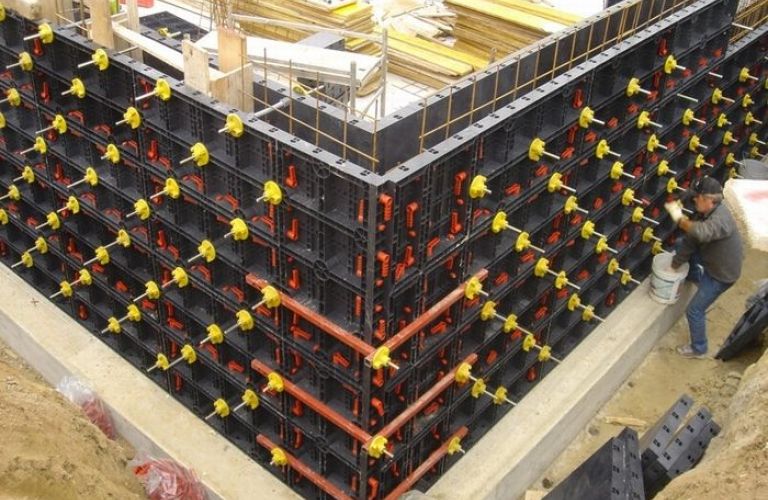The advantages of using plastic formwork on construction sites
14 October 2021
Plastic formwork is the most suitable solution for the construction of concrete elements of different thickness and height such as rectangular or round section columns, pillars, walls and foundation beams.
Formwork for construction are temporary containment structures within which concrete is poured to take the desired shape.
Their installation has a temporary nature: when the concrete acquires the desired structural characteristics and shape, the formwork that contains it will be removed.
Depending on the material with which they are made, there are two main types of formwork: disposable and reusable.
The disposable formwork in wood
The most common types of formwork are made of wood and are used in small construction sites, or for the construction of small buildings.
Every time they are needed, they are made with axes cut to the desired size, assembled with nails and reinforced with props.
For this reason, and also because of the strong mechanical stress to which they are subjected, after few uses the wooden boards lose their characteristics of uniformity of the surface in contact with the concrete, and it is necessary to replace them.
The reusable formwork
On the other hand, modular steel or plastic formwork is used in the prefabrication sector and in large construction sites.
These systems include panels of different sizes, which can be connected to each other through quick-closing joints, fastening handles and other devices to facilitate installation.
Compared to wooden formwork, these solutions offer greater resistance, and fear neither the atmospheric agents nor the humidity of fresh concrete.
For these reasons, they are easy to maintain and can be reused almost unlimited times.
Thanks to their versatility, these elements can be variously combined to create structures of different shape and thickness.
In addition, they allow greater precision in positioning and leveling of flat surfaces, both vertically and horizontally.
This results in a high quality of the concrete surface finish, which in many cases does not require further treatment after drying.
The formwork in plastic
In particular, plastic formwork is the most suitable solution for the construction of elements of different thickness and height such as columns with rectangular or round sections, pillars, walls and foundation beams in concrete.
In fact, in addition to the versatility, modularity and possibility of reuse, they stand out for their lightness compared to more traditional materials such as wood or steel.
This allows greater handling on the construction site, even on the highest floors of buildings, or in places inaccessible to cranes and machinery for handling heavy loads.
Therefore, having plastic formwork means carrying out assembly and disassembly operations faster, optimizing production times with considerable advantages even in the storage and transport phases.
In addition, the smooth plastic surface facilitates its removal, allowing easy detachment from the concrete artifact at the end of the drying process.
A further advantage of plastic formwork is the ease of maintenance: before using it again, simply clean it with a jet of water.

WE PRODUCE HIGH QUALITY POLYETHYLENE PRODUCTS FOR
CIVIL AND INDUSTRIAL USE

